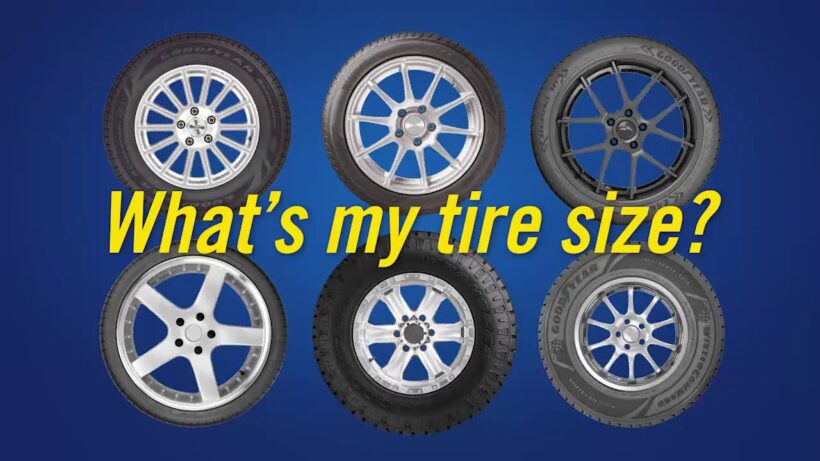When it comes to vehicle maintenance, one of the key decisions that every car owner faces is choosing the right set of tires. Your wheels are the only point of contact between your vehicle and the road, playing a crucial role in ensuring safety, comfort, and performance during your journeys. Whether you’re navigating through city streets, cruising on highways, or exploring rugged terrains, the quality and condition of your tires can significantly impact your driving experience.
In this context, the debate between opting for used ones or investing in new set is a common dilemma. Each choice comes with its own set of advantages and disadvantages, influenced by factors such as cost, durability, and intended use. As such, making an informed decision requires a thorough understanding of these aspects, balanced against personal needs and preferences. In this comprehensive guide, we’ll explore the pros and cons of both options, helping you make informed choices when visiting your trusted tire store.
New Tires: Pros and Cons

Pros:
- Optimal Performance: New ones offer superior traction and handling, enhancing your vehicle’s performance on various road surfaces and weather conditions
- Warranty Coverage: Most new tyres come with manufacturer warranties, providing peace of mind against defects and premature wear.
- Latest Technology: New ones often incorporate advanced technologies and innovative designs, resulting in improved fuel efficiency and longer tread life.
Cons:
- Higher Cost: The primary drawback of new tires is their higher upfront cost compared to used options, potentially straining your budget.
- Immediate Depreciation: Like any new purchase, the value of new tyres depreciates as soon as they are installed on your vehicle, affecting their resale value.
Used Tires: Pros and Cons

Pros:
- Cost Savings: One of the most significant advantages of used tyres is their lower price point, allowing you to save money without compromising on safety or performance.
- Environmentally Friendly: Opting for used tires contributes to reducing waste by extending the lifespan of existing tire resources, promoting eco-conscious practices.
- Availability: Used ones are readily available, offering a wide range of options to fit different vehicle makes and models, making them accessible for budget-conscious consumers.
Cons:
- Unknown History: The main drawback of used tyres is the uncertainty surrounding their previous usage and maintenance history, potentially posing safety risks if improperly maintained or damaged.
- Limited Warranty: Unlike new ones, used tires typically do not come with manufacturer warranties, leaving you responsible for any issues that may arise post-purchase.
- Shorter Lifespan: Used tyres may have already undergone significant wear and tear, resulting in a shorter remaining tread life compared to new tires, requiring more frequent replacements.
Making the Right Choice
When deciding between used and new tires, it’s essential to consider factors such as your budget, driving habits, and vehicle requirements. While new ones offer optimal performance and warranty coverage, used tyres provide cost savings and environmental benefits. Visiting your local tire store allows you to explore both options firsthand, consulting with tire experts to find the best fit for your vehicle and budget.
Extending the Discussion: Factors to Consider When Choosing Tires
In addition to the pros and cons of new and used tires, several other factors merit consideration when selecting the right tires for your vehicle. By taking these factors into account, you can make a well-rounded decision that meets your specific needs and preferences.
1. Tire Size and Type:

Before purchasing tyres , it’s crucial to ensure they are the correct size and type for your vehicle. Tire size specifications can be found in your vehicle’s owner’s manual or on the sidewall of your current tires. Additionally, consider the type of ones suitable for your driving conditions, whether it be all-season, winter, or performance tires.
2. Driving Habits and Conditions:
Your driving habits and typical driving conditions play a significant role in determining the most suitable tires for your vehicle. If you frequently encounter harsh weather conditions such as snow or ice, investing in winter tyres can enhance traction and safety. Similarly, if you engage in spirited driving or require high-performance capabilities, performance ones may be the ideal choice.
3. Tread Pattern and Design:
The tread pattern and design of tires impact their performance in various road conditions. Tires with deeper treads and aggressive patterns excel in off-road environments and provide enhanced traction on slippery surfaces. Conversely, tires with shallower treads and more rigid patterns are designed for smooth, paved roads, offering improved fuel efficiency and handling.
4. Budget and Long-Term Costs:
While the upfront cost is a significant consideration, it’s essential to evaluate the long-term costs associated with tire maintenance and replacement. New tires may come with higher initial expenses, but their longer lifespan and warranty coverage can result in lower overall costs over time. On the other hand, used tyres offer immediate cost savings but may require more frequent replacements, potentially offsetting the initial savings.
5. Tire Maintenance and Care:

Regardless of whether you choose new or used tires, proper maintenance and care are essential for maximizing their lifespan and performance. Regularly check tire pressure, rotate tires at recommended intervals, and inspect for signs of wear and damage. Additionally, ensure proper alignment and balancing to prevent uneven wear and maintain optimal handling.
Conclusion
Whether you opt for new or used tyres, prioritizing safety and performance is paramount for your vehicle’s maintenance. By weighing the pros and cons of each option, you can make informed decisions that align with your needs and preferences. Remember to consult with tire professionals at your trusted tire store to receive expert guidance and assistance in selecting the right tires for your vehicle, ensuring a smooth and enjoyable driving experience for miles to come.

